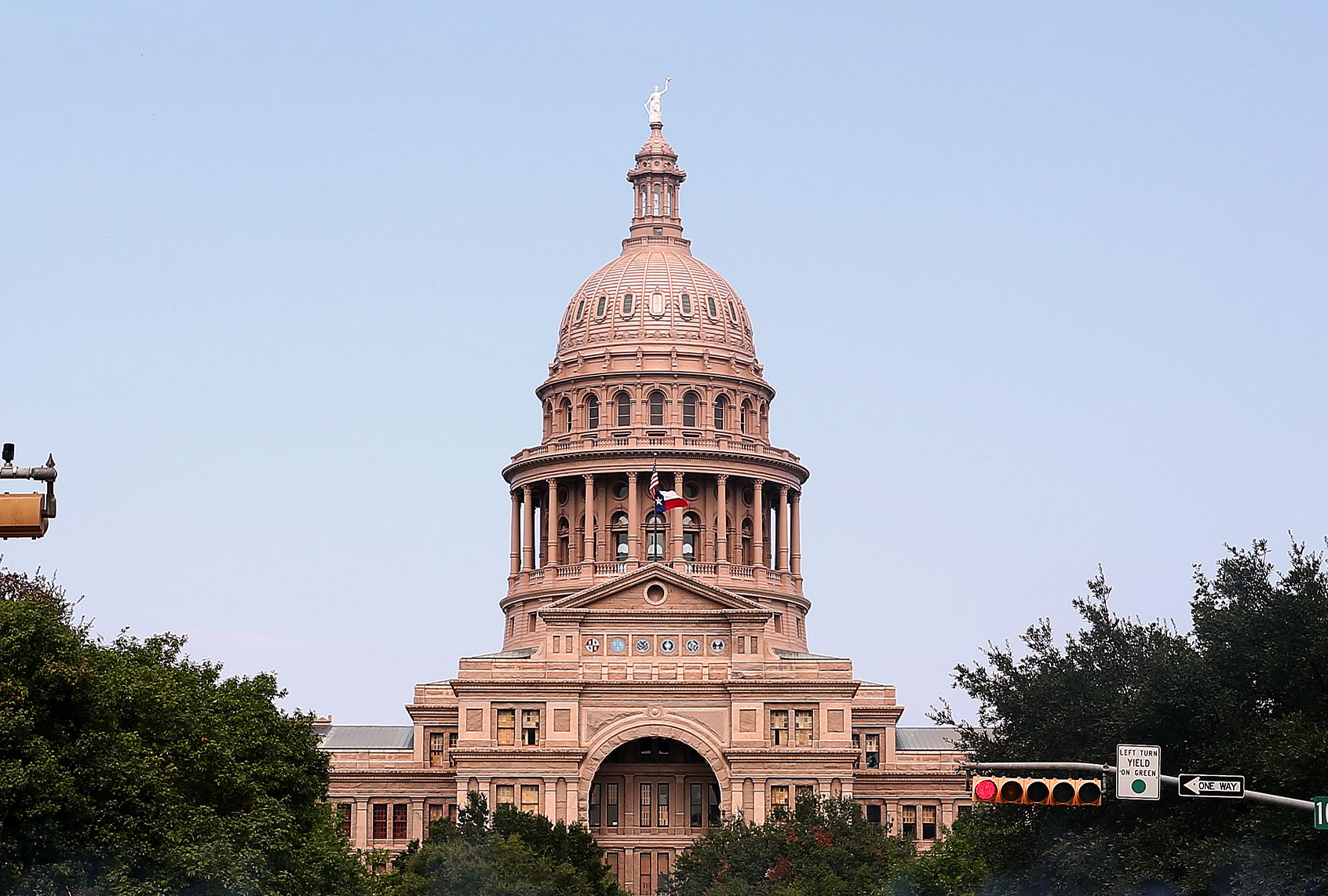After hundreds of Texans lined at their state capitol on Saturday to testify against a GOP-backed restrictive voting bill, only to face a 17-hour wait until they were actually heard by the state’s legislature, Democratic lawmakers fled the state on Monday. The move is meant to prevent Texas Republicans, who hold majority control in both chambers of the statehouse, from holding the quorum necessary to vote on the restrictive crackdown on voting.
The development, first reported by The Texas Tribune, centers on two recent measures designed to crack down the alleged risk of widespread voter fraud in the Lone Star State. The measures, Senate Bill 1 and House Bill 3, contain provisions that would effectively ban 24-hour voting, end drive-thru voting, and limit the potential reach of mail-in-ballots – all of which helped Texans cast a vote in the 2020 election.
S.B. 1 was moved out of committee on Sunday along a 6-3 vote. H.B. 3, meanwhile, was advanced out of committee with a 9-5 vote along party lines following a Saturday hearing.
Hundreds of voters flocked to the Capitol to voice both opposition and support for bills over the weekend. MOVE Texas, a nonpartisan grassroots group that advocates for underrepresented youth, trained 50 attendees on how to testify against the bills. The legislature also heard from Delta Sigma Theta Sorority, a historically Black sorority that expressed staunch opposition to the measures, according to the Tribune.
Omitted from the bills over the weekend were two of their most extreme provisions: a ban on early Sunday voting before 1 p.m. and an expansion of the state’s judicial power to reverse an election.
Still, according to multiple reports, 58 Democrats are leaving the state, mostly bound for Washington D.C. on private planes. The Texas state constitution says that a two-thirds quorum is required for legislation to pass.
“We are now taking the fight to our nation’s Capitol. We are living on borrowed time in Texas. We need Congress to act now to pass the For the People Act and the John Lewis Voting Rights Act to protect Texans — and all Americans — from the Trump Republicans’ nationwide war on democracy.”
@ChrisGTurner, @RafaelAnchia, @NicoleCollier95, @Senfronia4Texas & @GFColeman release official join statement on the TX House Democrats' quorum break. #txlege https://t.co/GyxoDTPtMk
— Texas House Democrats (@TexasHDC) July 12, 2021
Republican state Rep. Andrew Murr, who drafted the house bill, defended the restrictions as measures meant to buttress election integrity.
“This is a serious attempt to make sure that Texas has good policy in place,” Murr claimed. “I’m confident that we’re here because of the electoral process and our constituents trust us, but at the same time, I want them to always continue to believe in that.”
Texas Gov. Greg Abbott, a Republican, has steadfastly supported both measures with the same reasoning, arguing that 24-hour voting and drive-thru voting threaten “the sanctity of the ballot box.”
“With regard to the drive-through voting,” Abbott explained in a “Fox News Sunday” interview. “This violates the fundamentals of the way voting and voter integrity has always been achieved and that is the sanctity of the ballot box. Are you going to have people in the car with you … who may have some coercive effect on the way that you would cast your ballot?”
Local officials have noted that many of the provisions included in the bills will disproportionately target voters of color.
Under questioning by a number of Democrats in the chamber, Murr admitted that he had not conducted a disparate impact study on how the bills might affect different communities.
Democratic state Sen. Royce West specifically took issue with Republicans scrapping certain voting options altogether without making an attempt to discuss how to improve them.
“Surely, we should be able to find ways to resolve those issues, especially if it’s a convenient model for people to be able to vote,” West argued. “When we stand up and say, ‘We can’t fix it but we don’t even want to look at trying to fix it,’ I think it’s inconsistent with the intent of the bill.”
The bills also saw Democratic opposition from former presidential candidate Beto O’Rourke. “It is the big lie that is the source and inspiration for so many of these voter suppression bills,” O’Rourke said in his testimony. “Some of you are akin to the arsonist who wants to light the fire, and then get credit for trying to put it out, because you say, look, there may not be a statistically meaningful level of voter fraud, but my constituents are worried about it. Well, why are they worried about it? Because you keep talking about a problem that doesn’t exist and then trying to apply a solution that’s in search of a real problem.”
Last June, the Texas legislature saw another voting showdown when Texas Democrats coordinated a full-fledged walkout, denying House Republicans the quorum vote on Senate Bill 7, another restrictive voting bill. The move was a last-ditch attempt to block the GOP’s circumvention of a state requirement that any bill be public for 24 hours before it is voted on.

